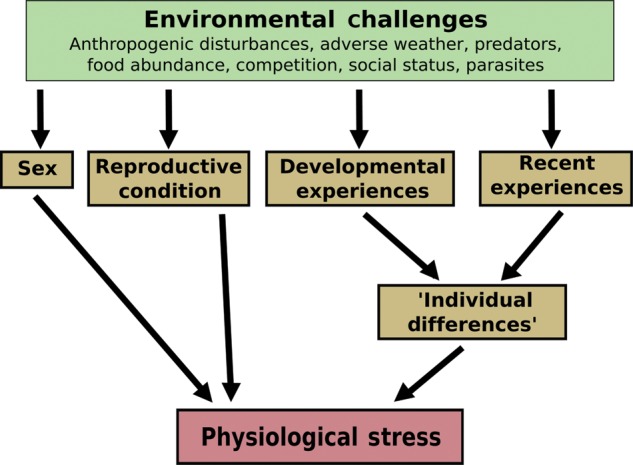Figure 1:

Differences in the intrinsic characteristics of individuals can modify the relationship between environmental challenges (‘stressors’) and measures of physiological stress, such as glucocorticoids. There are many environmental challenges that elicit a physiological stress response, including anthropogenic disturbances and abiotic (weather) or biotic factors (predator or food abundance, competition, social status or parasite load). These anthropogenic and natural environmental challenges can also interact with each other to influence the physiological stress response. The physiological stress response of individuals to these environmental challenges can be modified by the sex of the individual, its reproductive condition (e.g. breeding or non-breeding season, pregnancy, lactation), through ‘individual differences’ that arise due to developmental or recent experiences that either sensitize or desensitize the physiological stress response to environmental challenges.
